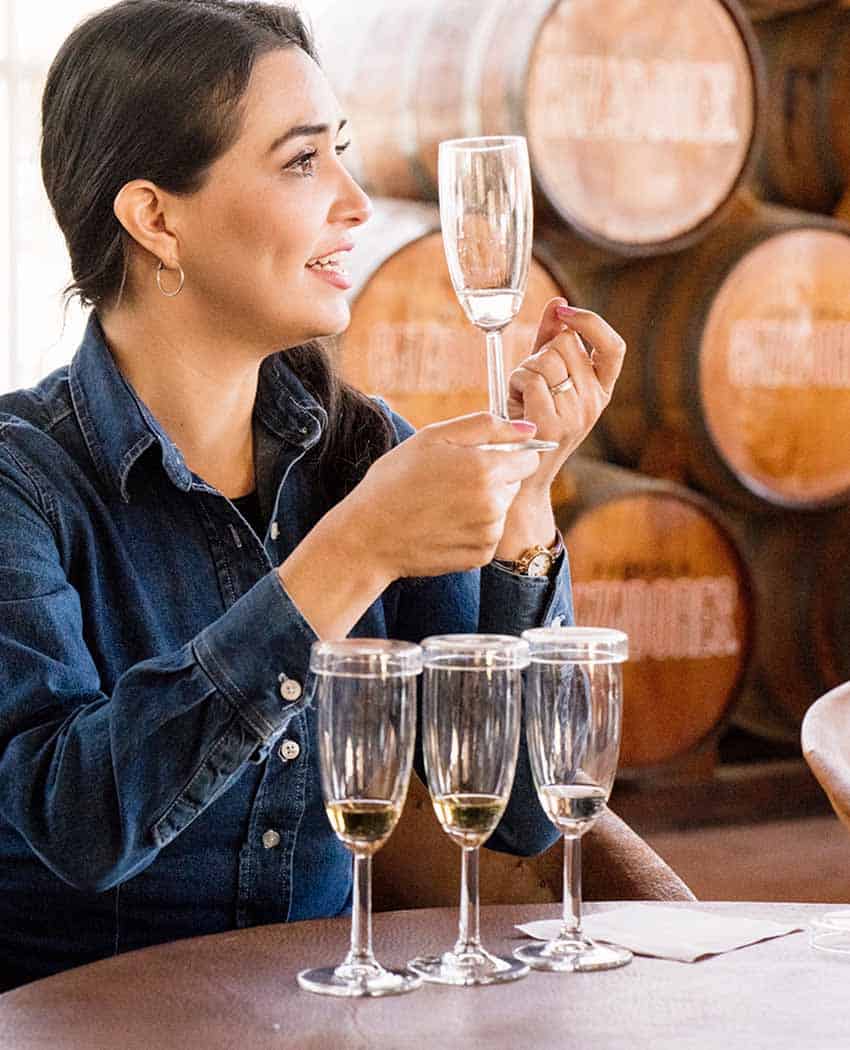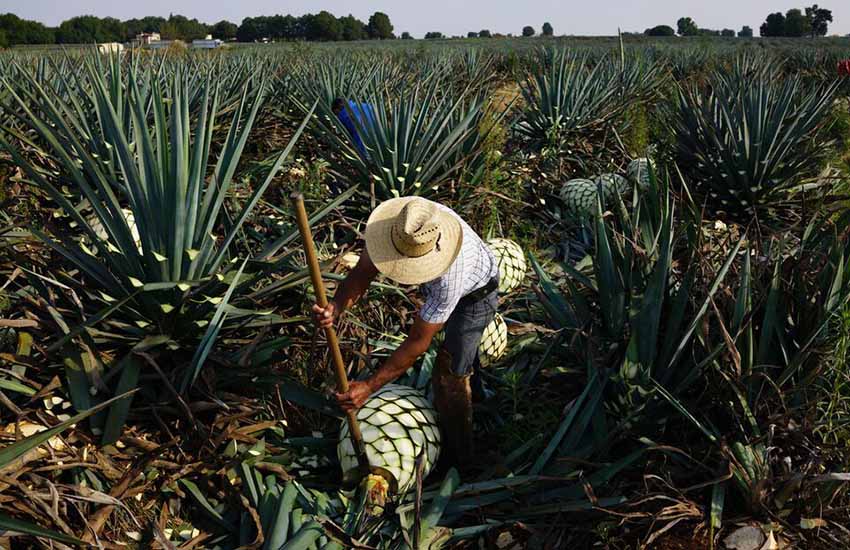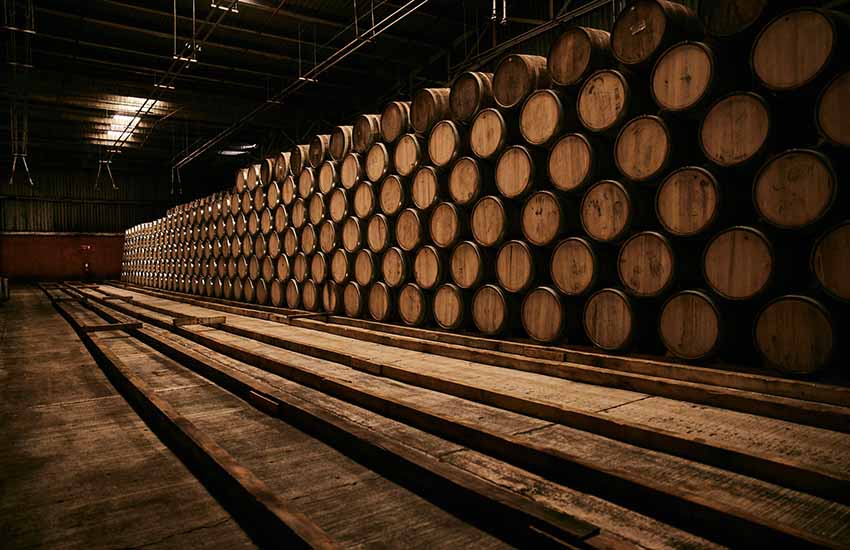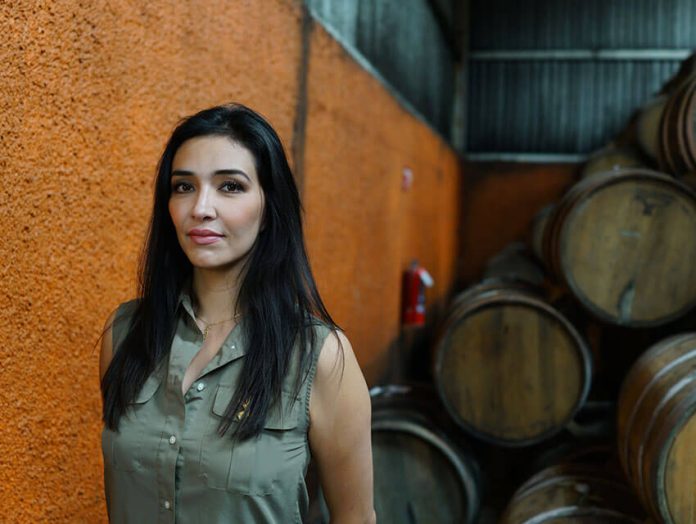Tequila has put its association with spring breakers and cheap cocktails behind it.
Connoisseurs today know that quality tequila can be enjoyed at the same level as a fine whiskey or scotch. That international shift in perception is the result of the long and tireless work of its promoters, makers and drinkers around the world, but particularly in the cradle of tequila – Jalisco.
Tania Oseguera, brand promoter and master tequilier at Tequila Cazadores, is part of that newest generation of tequila evangelists.
Born in 1981 in Jalisco, Oseguera was surrounded by tequila but dreamed of becoming a ballerina. However, her parents’ divorce when she was 11 forced her to quit ballet training as her single mother struggled financially. A self-described “nerd,” she made it through school thanks to academic scholarships and started working at a young age to help her family.
“I used to hear my uncles and other adults here in Jalisco talking about tequila, but I never imagined there was so much to learn about it and that I was going to like it so much,” she says.

In the early 2000s, Oseguera graduated with a degree in communication sciences and cultural journalism from the Universidad del Valle de Atemajac.
Like any other graduate, she was hoping to find a job related to her career, but she eventually realized that jobs in her field were not well-paid. “Because of the financial needs of my family, I decided to take a part-time job as a promo model while I found something that better suited my goals,” she says.
In 2005, she heard that Cazadores was looking for models to promote their brand in the United States, and she tried out for a spot.
“I never thought I’d be selected; then I heard that they were looking for Mexican bilingual girls that would know how to sing or dance. Since I had ballet training and had been studying English on my own for a long time, I thought that maybe, just maybe,” she says.
Oseguera ended up being one of the nine girls selected to be the brand’s Chicas Cazadores. The group performed folkloric dances, sang and promoted tequila in the U.S. for six months, traveling on a bus plastered with their pictures.
“As a promo girl, I was used to selling different products, but this time, the product I was promoting … had a different meaning to me, because it symbolized my country, my culture, my people,” she said.

When the tour finished, Cazadores offered her a job as the distillery’s tour guide. Two years later, they made her a national brand ambassador. With the company’s support, she obtained an MBA in marketing and master tequilier certification by the Tequila Academy. She also has a T Award by the Tequila Regulatory Council.
At Bacardi (Cazadores’ parent company), Oseguera was pleasantly surprised to see women working at all levels. She counts female coworkers (and her mom) among her best mentors.
Being surrounded by support is especially important for women in a male-dominated industry like tequila.
“It’s true that men are typically the face of tequila,” says Oseguera, “but I think that has gradually been changing over time. I have felt some initial hesitation about my [tequila] knowledge from some men in the industry, but I see that this perception changes quickly when they listen to me talking about a topic I know and love.”
Oseguera has also had to deal with sexism in her local community and move beyond the stereotype that women are only useful while young and pretty.
“It was upsetting to realize that journalism was so poorly paid while a promo-model job was much better compensated,” she says. “I want to be valued for my skills and for my efforts, not only for the way I look! Even after all these years of work at Tequila Cazadores, there are still friends and family members that have asked me what I’m going to do professionally now that I don´t look as young anymore!

“I know they mean well, but it is disappointing that in Mexico a lot of people still think that the most important trait that women have to offer is the way they look. Fortunately, these ideas are changing gradually.”
Attitudes about tequila are changing as well. Shot drinkers are becoming aficionados, and high-end tequila is now paired with gourmet food.
“When I started working as a tequila ambassador, few people were aware of the difference between a 100% blue agave tequila and other tequilas that mix agave with other alcohol sources,” Oseguera says.
The industry is also changing: sustainability, for example, is a hot topic among tequila makers.
Oseguera insists that there are sustainable ways to make tequila that respect tradition as well as protect the earth. Cazadores, for example, is working toward zero-waste production by converting the waste from their distillery into biofuel. Its distillery runs on 99% renewable energy.
This year, the company is celebrating the 100th anniversary of the brand’s original recipe with a collector’s bottle and other events.
“[The launch] gives us the opportunity to toast not only to the brand’s anniversary, but it also comes after a time that’s been difficult for everyone due to the pandemic,” Oseguera says. “Having a reason to celebrate is true to who we are as a brand. “We want to continue to bring people together in moments that they are enjoying with family and friends.”
Lydia Carey is a freelance writer and translator based out of Mexico City. She has been published widely both online and in print, writing about Mexico for over a decade. She lives a double life as a local tour guide and is the author of Mexico City Streets: La Roma. Follow her urban adventures on Instagram and see more of her work at www.mexicocitystreets.com.
